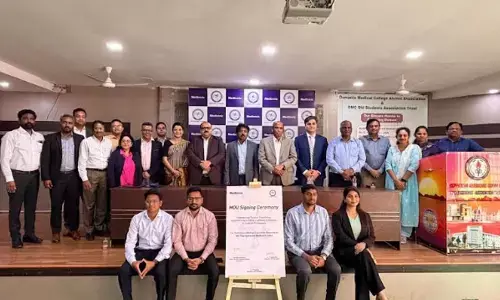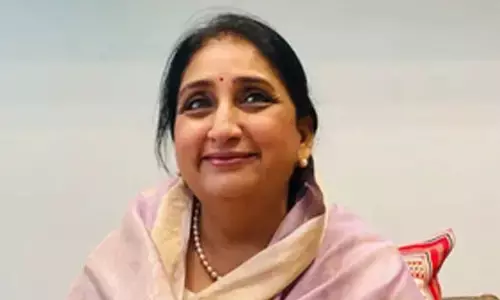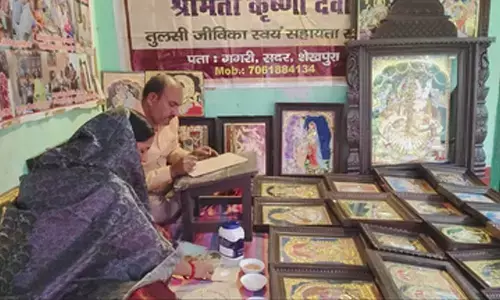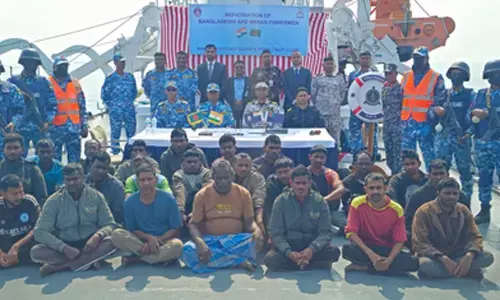Ayodhya case arrives at crucial phase, intense arguments expected
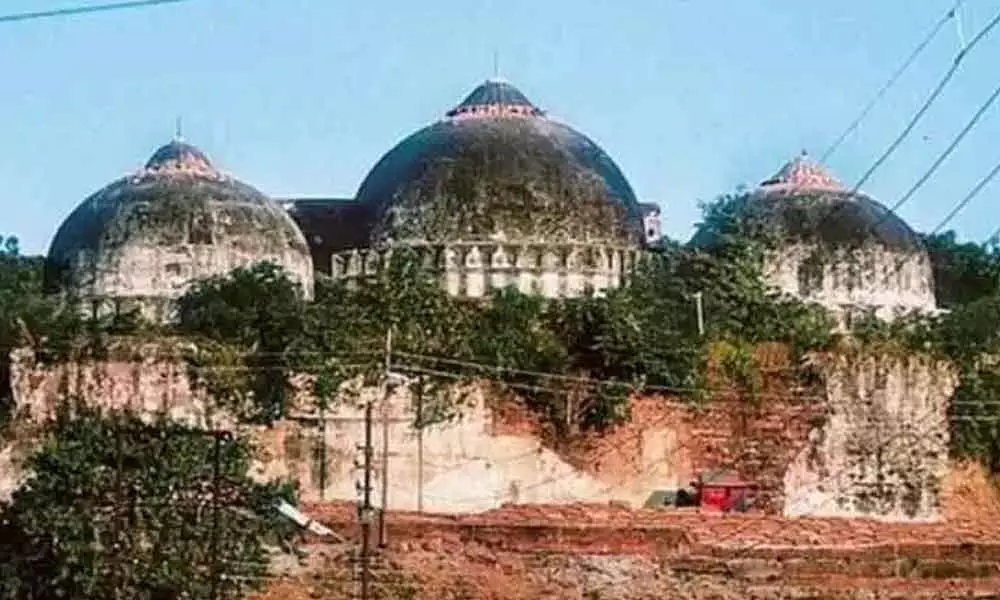
Intense arguments are predicted in the Ayodhya title dispute in the Supreme Court as the October 18 deadline approaches, leaving eight days of active hearing in the politically vexing 70-year-old case. A Constitution bench comprising five judges and headed by Chief Justice is the hearing the matter, who have expressed probability of hearing on Saturday, if it is required.
New Delhi: Intense arguments are predicted in the Ayodhya title dispute in the Supreme Court as the October 18 deadline approaches, leaving eight days of active hearing in the politically vexing 70-year-old case. A Constitution bench comprising five judges and headed by Chief Justice is the hearing the matter, who have expressed probability of hearing on Saturday, if it is required.
The preview of the emerging war of words -- a heated argument between Hindu and Muslim parties' counsel -- was visible on Tuesday. A high-pitched intervention by Muslim parties on the submission of senior advocate C.S. Vaidyanathan, appearing for Ram Lalla Virajman, in support of the Archaeological Survey of India, tested the patience of Chief Justice Gogoi, who reprimanded the Muslim parties counsel for being repetitive.
Vaidyanathan, who had often remained calm and composed in the hearing, had also got irritated and increased his pitch on the microphone to counter the Muslim parties' counsel. For a while the courtroom plunged into chaos.
The Sunni Waqf Board, represented by senior advocate Rajeev Dhavan, will begin arguments on its suit on Friday, and are which is most likely to conclude in the middle of the week beginning on October 14. Dhavan had already made the bulk of the arguments, for the Muslim parties, for close to two weeks. He has been very consistent in arguments, and though he apologized for his conduct inside the courtroom, but never backtracked on the argument.
Dhavan had also adopted fire-fighting strategy to defend arguments of other counsel in his legal team. It will be interesting to see how he strategically places his arguments before the court � whether he invokes sharp responses from opposite parties or evokes queries from the bench.
After Muslim parties conclude arguments, the Hindu side will have two or three working days to counter them. Therefore, the crucial and nervy phase in the Ayodhya dispute has arrived. After a gap of nine years, the matter is up for adjudication, and now, merely a week is left in concluding final arguments on the matter.
It is likely that a competitive and emotionally charged atmosphere, in this crucial phase, would build in the remaining days, as seen by the heated arguments on Tuesday. The continuous interference by Muslim parties have already irritated senior advocates K. Parasaran, who is also representing Ram Lalla and Vaidyanathan. The counsel have maintained composure during intense arguments where several assertions were made on Hindu faith and belief.
The Hindu parties are in the process of establishing two crucial aspects before the Supreme Court to claim possession on the disputed land. The first is Ram Janmabhoomi -- the land below the central dome of the disputed structure as the birthplace of Lord Ram as a juristic entity, which is subject to law. And second, the credibility accorded to the ASI report by the Allahabad High Court in its judgement in 2010. The report had concluded a Hindu temple lay below the Babri Masjid.
Strategically, Hindu parties have consistently backed their arguments from the High Court judgement, which runs into nearly 6,000 pages, and raised specific queries in connection with faith and divinity from a legal perspective before the Supreme Court.
Parasaran made submissions on treating land as a juristic entity, which is subject to law. Muslims have contested this argument and claimed that the place under the central dome of the Babri Masjid was not the birthplace of Lord Ram. The court queried Parasaran that his arguments can have larger ramifications, as anybody can approach the court of law claiming divinity in land. He clarified that the court has to deal with case-wise on the issue citing diversity in belief in Hindu culture and tradition. This evoked sharp response from the opposite parties.
Vaidyanathan, countering the arguments against the ASI report, strategically contested Muslims parties' claims by citing High Court observations, included in the verdict, on the ASI report. This led to a huge argument where the opposite party claimed Vaidyanathan is making a statement in connection with a wall, which Muslims claims indicated an Idgah structure, is not apparently correct. It is expected that the day-long hearing on Thursday will be crucial for Hindu parties to make their case more firmly before the court.












